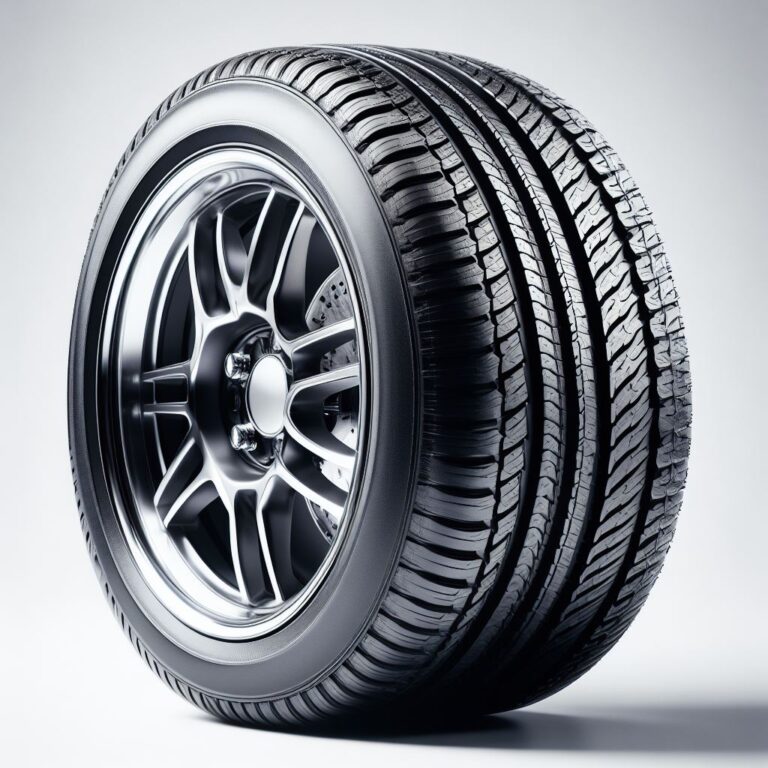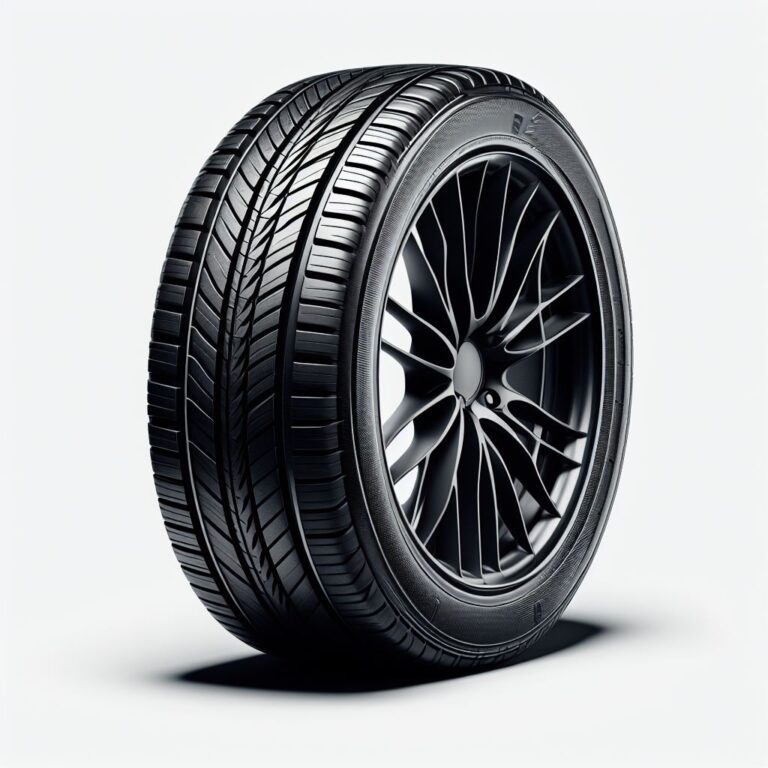How To Choose BFGoodrich Winter T/A KSI
- How To Choose Arctic Claw WXI - January 20, 2024
- How To Choose BFGoodrich Advantage Control All Season - January 20, 2024
- How To Choose BFGoodrich Winter T/A KSI - January 20, 2024

Understanding the Importance of Winter Tires
Winter driving conditions can be treacherous and unpredictable. Snow, ice, and slush can make the roads extremely slippery, reducing traction and control. This is where winter tires come in. They are specifically designed to provide optimal performance in cold weather conditions, ensuring a safer drive for you and your passengers.
The importance of winter tires lies in their ability to maintain traction on snowy and icy surfaces. Unlike all-season tires, which can harden and lose grip in cold temperatures, winter tires are made with a special rubber compound that stays flexible even in freezing conditions. This allows them to grip the road better, providing better control when braking, accelerating, and cornering. Investing in a set of winter tires can greatly enhance your safety and peace of mind during the winter months.
Factors to Consider When Choosing Winter Tires
When it comes to choosing winter tires, there are several factors that you need to consider before making a decision. One of the most important factors is the type of winter conditions you will be driving in. If you live in an area with heavy snowfall and icy roads, you will need tires that are specifically designed for such conditions. On the other hand, if you live in an area with milder winters, you may be able to get away with all-season tires that have good traction on wet and cold surfaces.
Another factor to consider is the size and fitment requirements for your vehicle. It is crucial to choose winter tires that are the correct size for your car. Using the wrong size can affect your vehicle’s handling and performance on slippery roads. Additionally, you should also consider the load and speed ratings of the tires to ensure they are appropriate for your vehicle.
By taking into account these factors and doing some research, you can make an informed decision when it comes to choosing winter tires that will provide maximum safety and performance during the cold winter months.
Assessing Your Driving Needs and Conditions
One of the key factors to consider when choosing winter tires is assessing your driving needs and conditions. Different climates and driving conditions require specific tire features to ensure optimal performance and safety. Before making a purchase, take a moment to evaluate the typical weather conditions in your area during the winter months. Consider factors such as average snowfall, the frequency of ice or black ice on the roads, and the temperature range you can expect. This will help you determine the level of traction and grip you need from your winter tires to navigate these conditions confidently.
Additionally, think about your driving habits and the routes you commonly take. Do you primarily drive on highways, where maintaining stability at high speeds is crucial? Or do you find yourself frequently navigating curvy, hilly, or unpaved roads? Identifying your typical driving conditions will help you choose winter tires that offer the appropriate performance characteristics for your needs. By understanding the unique challenges you face on the road, you can make an informed decision when selecting winter tires and ensure a safer driving experience during the winter season.
Evaluating the Performance of BFGoodrich Winter T/A KSI
When evaluating the performance of BFGoodrich Winter T/A KSI, it is important to consider its key features and how they contribute to enhanced winter driving. The tire is designed with a specialized tread compound that provides excellent traction on snow and ice, ensuring better control and handling in challenging conditions. Additionally, the tire features an aggressive tread pattern with deep sipes, which helps to evacuate slush and water quickly, reducing the risk of hydroplaning. This combination of features allows the BFGoodrich Winter T/A KSI to deliver reliable performance and confidence while driving in winter weather.
Another aspect to consider when evaluating the performance of BFGoodrich Winter T/A KSI is its braking capabilities. The tire is engineered with a high-silica tread compound that maintains flexibility even in freezing temperatures, promoting shorter braking distances on icy or snowy roads. This can greatly enhance safety, especially in sudden stopping situations. Additionally, the tire’s wide shoulder blocks contribute to improved stability during cornering and overall responsiveness. Overall, the BFGoodrich Winter T/A KSI showcases a promising performance that is worthy of consideration when looking for winter tires to navigate through challenging winter conditions with ease and confidence.
Comparing BFGoodrich Winter T/A KSI with Other Winter Tires
When it comes to choosing winter tires, it is essential to compare different options and evaluate their performance in order to make an informed decision. BFGoodrich Winter T/A KSI is a popular choice among drivers, but how does it compare to other winter tires? One important factor to consider is the traction and grip provided by the tires on snowy and icy surfaces. BFGoodrich Winter T/A KSI is known for its excellent traction, which allows for better control and handling in winter conditions. Other winter tires may claim to offer similar performance, but it is crucial to read reviews and gather feedback from other users to get a better understanding of their actual performance on the road. Additionally, it is important to consider other aspects such as braking distance, stability, and durability when comparing BFGoodrich Winter T/A KSI with other winter tires. By thoroughly assessing these factors, drivers can make an informed decision about which winter tire is best suited for their needs.
Reading Reviews and Gathering Feedback from Other Users
Once you have narrowed down your choices for winter tires, it is essential to gather feedback from other users before making your final decision. Reading reviews and seeking the opinions of other drivers who have already used a particular brand or model can provide valuable insights into the tire’s performance and reliability.
By reading reviews, you can get a sense of how the tires handle in different winter conditions, such as snow, ice, and slush. Users often share their experiences and rate the tires based on factors like traction, braking, and overall performance. Additionally, feedback from other drivers can offer insights into the tire’s durability, noise level, and tread life. Gathering feedback from a wide range of users can help you make an informed decision and choose the winter tires that best suit your driving needs and preferences.
Checking the Size and Fitment Requirements for Your Vehicle
When it comes to winter tires, it is crucial to ensure that they are the right size and fitment for your vehicle. Improperly sized tires can affect the performance and handling of your car on slippery winter roads. Before making a purchase, it is important to check your vehicle’s owner’s manual or consult a tire professional to determine the correct tire size and fitment requirements. This information can usually be found on the sidewall of your current tires as well. It is essential to match the tire size and fitment to your vehicle’s specifications to ensure optimal safety and performance during winter driving conditions.
Incorrectly sized or ill-fitting tires can lead to a variety of issues. For instance, tires that are too small may not provide adequate traction, compromising your ability to grip the road. On the other hand, tires that are too large may rub against the wheel well or other parts of the vehicle, causing potential damage. Additionally, tires that do not meet the proper load rating for your vehicle may result in reduced handling and an increased risk of accidents. Therefore, taking the time to carefully check the size and fitment requirements for your vehicle is crucial to ensure that you are equipping your car with the right winter tires for maximum safety and performance.
Understanding the Warranty and After-sales Support
When investing in winter tires, it is crucial to understand the warranty and after-sales support offered by the manufacturer. A solid warranty gives you peace of mind, knowing that you are protected in case of any defects or issues with your tires. Look for a warranty that covers manufacturing defects, tread wear, and road hazard damage. It is also essential to understand the terms and conditions of the warranty, such as any maintenance requirements or limitations.
In addition to the warranty, consider the after-sales support provided by the manufacturer. This includes the availability of customer service and technical assistance. Having access to knowledgeable professionals who can address your concerns and provide guidance can significantly enhance your experience with winter tires. Check if the manufacturer has a dedicated support team that can assist you with any inquiries or problems you may encounter during the lifespan of your tires. Evaluating the warranty and after-sales support helps ensure that you are making a well-informed decision and receiving the necessary support throughout your ownership of winter tires.
Considering the Price and Value for Money
Price and value for money are two important factors to consider when purchasing winter tires. While it may be tempting to opt for the cheapest option available, it is essential to remember that the quality of the tires can greatly impact their performance and durability. Investing in a higher-quality tire may save you money in the long run, as they tend to last longer and provide better traction on slippery roads.
When evaluating the price of winter tires, it is important to compare different brands and models. While some may have a higher price tag, they may offer additional features that enhance their performance, such as improved grip, better handling, or reduced noise. Considering the value for money is crucial as it allows you to assess whether the price justifies the benefits and features offered by each tire. Ultimately, finding the right balance between price and value is key to making an informed decision and ensuring that you get the best winter tires for your vehicle and driving needs.
Making the Final Decision and Purchase.
After thoroughly evaluating the factors mentioned above, you should now have a clearer understanding of your driving needs and the specific conditions you will encounter during the winter season. With this knowledge in mind, it is time to make the final decision and purchase the most suitable winter tires for your vehicle.
Consider all the information you have gathered and weigh the performance, reviews, size and fitment requirements, warranty, and price of the BFGoodrich Winter T/A KSI against other options in the market. Remember to prioritize safety and traction on snowy or icy roads above all else. Additionally, take into account your budget and the value for money each tire offers. By making an informed decision, you can ensure that you invest in winter tires that will provide the best performance and durability throughout the winter season, giving you peace of mind as you navigate challenging road conditions.
What are winter tires and why are they important?
Winter tires are specially designed tires that provide enhanced traction and control in snowy, icy, and cold weather conditions. They are important because they improve your vehicle’s handling, braking, and overall safety on winter roads.
What factors should I consider when choosing winter tires?
Some factors to consider include the type of winter conditions you typically encounter, the tire’s tread pattern and depth, its traction and grip capabilities, and its overall performance in winter conditions.
How can I assess my driving needs and conditions?
Assessing your driving needs and conditions involves considering factors such as the average winter temperature, the amount of snowfall in your area, the type of terrain you frequently drive on, and your typical driving habits.
How do I evaluate the performance of BFGoodrich Winter T/A KSI tires?
You can evaluate the performance of BFGoodrich Winter T/A KSI tires by reading professional reviews, comparing them with other winter tire options, and gathering feedback from other users who have already used these tires.
How do BFGoodrich Winter T/A KSI tires compare with other winter tires?
Comparing BFGoodrich Winter T/A KSI tires with other winter tires involves looking at factors such as traction, handling, braking performance, tread life, and overall customer satisfaction to determine how they stack up against the competition.
Is it important to read reviews and gather feedback from other users?
Yes, reading reviews and gathering feedback from other users can provide valuable insights into the real-world performance and durability of BFGoodrich Winter T/A KSI tires, helping you make an informed decision.
How do I check the size and fitment requirements for my vehicle?
You can check the size and fitment requirements for your vehicle by referring to your vehicle’s owner’s manual, consulting a tire size guide, or contacting a professional tire retailer for assistance.
What should I consider regarding warranty and after-sales support?
When considering warranty and after-sales support, pay attention to the length and coverage of the warranty, any additional services offered, and the reputation of the manufacturer or retailer in terms of customer support and satisfaction.
Should I consider the price and value for money when choosing winter tires?
Yes, it’s important to consider the price and value for money when choosing winter tires. While you shouldn’t compromise on quality and performance, comparing prices and assessing the overall value offered by different tire options can help you make a cost-effective decision.
How do I make the final decision and purchase my chosen winter tires?
To make the final decision and purchase your chosen winter tires, you can visit a reputable tire retailer, compare prices and availability, consider any ongoing promotions or discounts, and consult with the retailer or tire specialist to ensure that the tires meet your specific needs and requirements.






